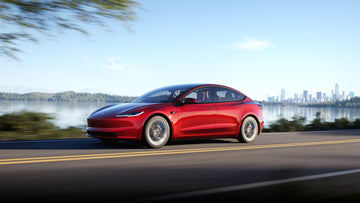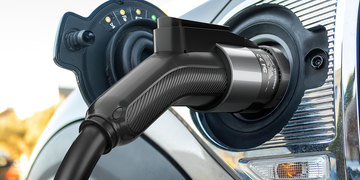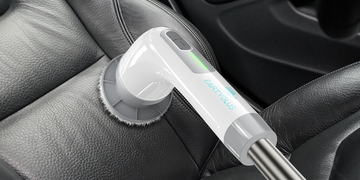Charging costs at electric vehicle charging stations in the United States, The exact amount depends on local electricity cost and regulations, as well as the type of charger. Level 2 chargers generally cost between $0.20 and $0.25 per kWh, while Level 3 chargers, which are more common in public, range from $0.40 to $0.60 per kWh.
electric vehicle (EV) charging costs can vary based on factors such as the charging station's location, the type of charging station, and the specific charging network. Charging stations in the United States typically fall into three main categories:
Level 1 Charging:
These are standard 120-volt outlets and are often used for home charging.
Charging at Level 1 is slower compared to higher levels but is usually less expensive.
Level 2 Charging:
These stations use 240-volt outlets, providing faster charging than Level 1.
Costs for Level 2 charging can vary, and some stations may charge per hour or per kWh (kilowatt-hour).
DC Fast Charging:
These are high-powered chargers that can quickly charge an electric vehicle, typically up to 80% capacity in a relatively short amount of time.
DC fast charging stations often charge per minute or per kWh, and the costs may be higher compared to Level 1 and Level 2 charging.
Cost to charge an electric car at a public charging station
charging your car at a public EV charging station is more expensive than charging at home. Public charging systems that charge based on kWh average anywhere between $0.30 and $0.60 per kWh compared to $0.16 per kWh at home. The exact amount depends on local electricity cost and regulations, as well as the type of charger. Level 2 chargers generally cost between $0.20 and $0.25 per kWh, while Level 3 chargers, which are more common in public, range from $0.40 to $0.60 per kWh.
However you look at it, public charging comes with a markup of at least 100% compared to charging your electric car at home. As a result, most EV drivers charge at home if they can because it’s cheaper and more convenient, and you can often avoid the detour of refueling.
Are there free public charging stations?
Today, the majority of public charging stations require some form of payment, whether EV drivers are expected to be a member of a particular network and pay a nominal monthly fee for this service or pay directly at the charging station.
Some locations offer EV charging as an amenity to attract new customers. For instance, some shopping malls, supermarkets and restaurants have a limited number of free chargers, and you can even find them at some hotels and universities. Nonetheless, these stations represent a small fraction of the total number of public charging stations. Free charging is undoubtedly one of the best ways to cut charging costs if you are one of the fortunate EV drivers with convenient access.

Cost to charge your car at a home charging station
Home charging stations are still the most viable and cost-effective option for electric vehicle owners. The best way to reduce charging costs for an electric vehicle is to charge your car at home.
Home charging station costs come down to the cost of equipment, installation, and your home electricity rate. Buying and installing a high-quality home charging system is approximately equal to a year of typical maintenance for a gas-powered vehicle. Additionally, the minimum tax credit provided by the IRS for purchasing a new electric car is almost double the amount of buying and installing a new home charging system.
Level 1 vs. Level 2 home charging station costs
A Level 1 charger will usually come free with your EV purchase, so it can serve as a helpful starter system. Level 1 chargers use standard 120-volt connections, so they can be plugged directly into your home's standard wall socket and begin charging almost immediately. These chargers are also more portable than Level 2 chargers. However, Level 1 chargers don’t connect to Wi-Fi, so you can’t optimize charging schedules or times to save money.
Level 2 home charging stations use a 240-volt connection to power your electric vehicle quickly and efficiently. Unlike Level 1 chargers, Level 2 EV chargers cannot be plugged directly into a standard outlet because they must be hardwired or plugged into a larger outlet. This means there are equipment and EV installation costs associated with using a Level 2 charger. Again, it’s worth noting that these costs are often offset by the tax credits you can get from the IRS when buying a new electric vehicle.
The overall average cost for a high-quality Level 2 charging system ranges between $600 and $2,000 depending on your house’s electrical system. This includes parts, labor, and installation. While this cost may seem a bit daunting, it’s a one-time expense that will save you money and pay off in the long run.
How do I reduce EV charging costs at home?
First, invest in a high-quality Level 2 smart charging station like our flagship product, the Telgeoot smart charger, which is one of Amazon’s top-selling home EV charging stations and recognized as the best home charger A high-quality smart charger ensures that your car is getting a full charge while saving you money on your electricity bill by optimizing charging times to capture the best cost per kWh.
More specifically, check the pricing for power in your local area. You may find that your utility charges higher time-of-use (TOU) rates for consuming electricity during peak times, when more customers are demanding electricity (such as after work between 4 p.m. and 9 p.m.). If you charge your EV at off-peak hours, your overall energy cost will be lower. By avoiding the most expensive times to charge your EV, you can save around 30% on energy costs while still getting the charge you need.
Another good way to cut down the cost of charging an electric car is to enroll in any energy-saving programs your city may offer to electric vehicle owners. To promote cleaner energy initiatives, some cities are offering lower power rates to households that own electric vehicles.
Charging costs at electric vehicle charging stations in the United States, The pricing structure can differ between charging networks, and some networks may offer subscription plans or loyalty programs that provide discounts. Additionally, the cost of electricity and local regulations can influence charging prices.





